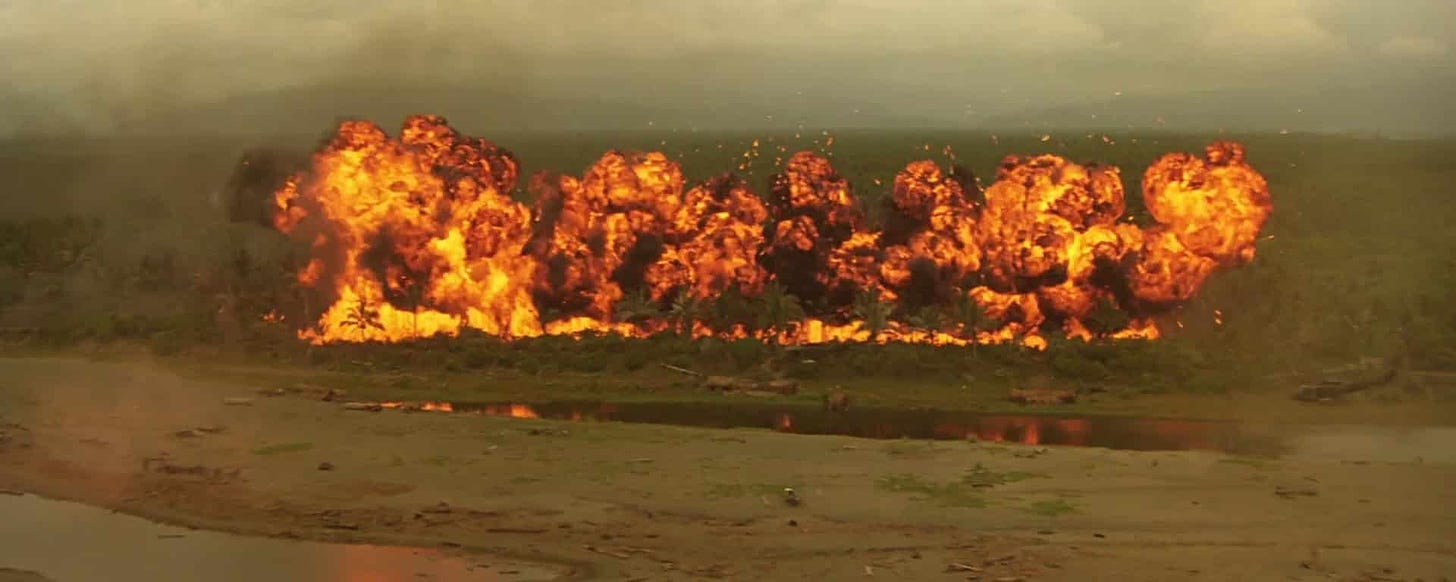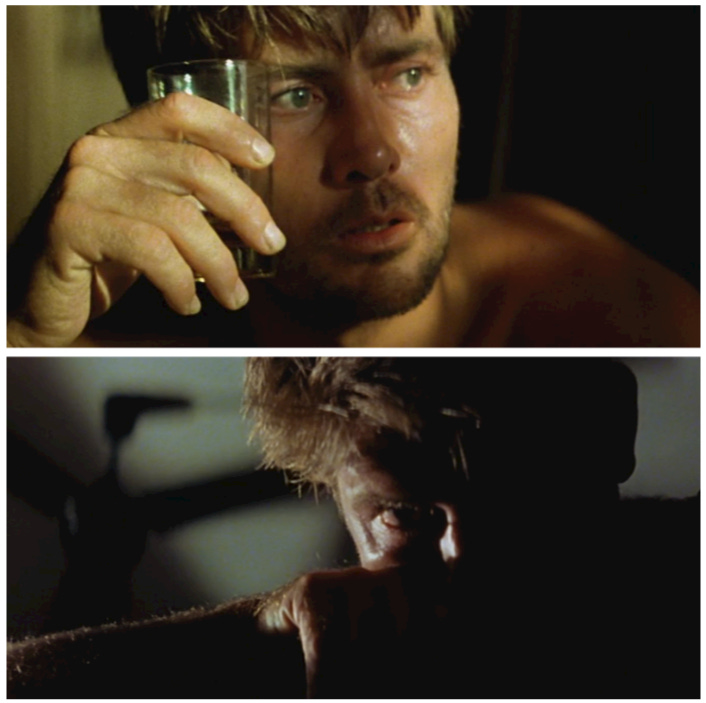“But the young hunter scorned all such warnings, and one day it happened. His hounds, hard on the trail, roused a wild boar, and as he rushed from the wood, Adonis struck him a glancing blow, and the boar turned, and shaking the spear from the side, came charging at the hunter, who feared and ran and fell, and the tusk entered deep in the groin, and the youth lay there dying, on the yellow sand.” —Ovid, Metamorphoses
Back Into the Jungle
In Part II we continued our exploration of Nietzsche’s Birth of Tragedy, including Apollonian and Dionysian impulses, the dreaded Wisdom of Silenus, the genesis of myth, and the ritual of tragedy.
We also examined Benjamin Willard’s trauma—his tragic flaw—which induces numbness during waking hours and apocalyptic nightmares at night.
In Part III we join Willard in Saigon, where he awaits orders for a special mission and longs to return to the same jungle where he was forever changed.
The Hotel Room
Apocalypse Now begins and ends inside the mind of Benjamin Willard, and within the first five minutes of film, we are thrust into one of his nightmares: a jungle, vast and mysterious, is consumed in a holocaustic blaze. Dark helicopters appear, circling the dying earth in a sharklike shiver, their blades slapping as they work. Everything ancient, rooted, and breathing withers below, and through thinning smoke we see a wasteland—black and barren. But as Willard dips in and out of consciousness, we also see the face of a stone idol—possibly a Buddha—staring from the flames, its gaze piercing straight through Willard. When the image finally fades and the helicopters return in a rush of beating wings, Willard awakes to find himself staring into the blades of a hotel ceiling fan.
We never learn the origin of these nightmares. It is a secret locked away in the deepest recesses of Willard’s mind, where feeling and instinct reign and reason dare not enter. In that murky place Willard’s most cherished illusions—even his sense of self—dissolve into a churn of emotion too powerful to be disciplined or contained, and so he drowns himself in liquor.
We learn that our protagonist is a seasoned MACV-SOG operator with several combat tours to Vietnam. He is also freshly divorced and an alcoholic, and he confesses a disdain for the domestic simplicity of life back in the States. On the surface, failure is what returns Willard to Vietnam—to that bleeding shred of jungle where discarnate spirits can feel embodied again. But his nightmares and drunkenness certainly reveal something more. Willard carries a deep psychic wound, and while it may be invisible to the naked eye, it festers and weeps all the same, driving Willard to the brink of annihilation.
Willard is stranded in that halfway house for the severely traumatized, a state of limbo where the condemned oscillate between numbness and overwhelming emotion—denial and a desire to confront or relive the traumatic event. Here in this no man’s land, Willard will occasionally return to that familiar world that left him behind—a home, a woman, a life—back to the shattered remains of a long-lost dream. But for some reason, no matter how far he strays, the jungle always calls him back.
“When I was home after my first tour it was worse. I’d wake up and there’d be nothing.
I hardly said a word to my wife until I said ‘yes’ to a divorce. When I was here I wanted to be there. When I was there all I could think of was getting back into the jungle…
Caught between these extremes, Willard experiences a psychological breakdown just hours before receiving his orders. Drunk and tormented by visions of smoke and fire, he punches a mirror while performing a kind of martial dance, smears blood across his face and collapses to the floor, naked and howling.






